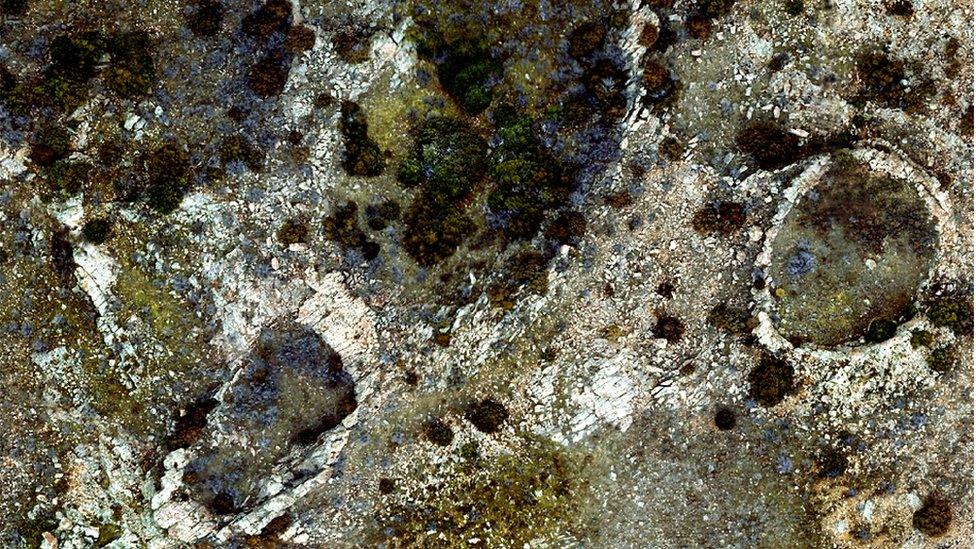Moon-like craters spotted on Earth for first time
- Published
- comments

Scientists in the US state of Wyoming have discovered a type of meteorite crater previously never seen on Earth.
The bumpy craters, which are up to 70 metres wide, look like the kind you'd see on the Moon.
It's believed that the impact which created the craters happened around 280 million years ago, way before the dinosaurs walked the Earth.
The finding is significant because the thick atmosphere of the Earth means that most meteorites evaporate and break up before they can actually hit the surface.
In a study published in the Geological Society of America Bulletin, the scientists describe the meteorite craters as "secondary impact craters."
This means the craters were created when pieces of a larger meteorite fell off after crashing into a planet or moon from space.
It's therefore likely that there's also a much larger crater in the area which hasn't been discovered yet.
You're more likely to see craters like this on rocky planets or the Moon (pictured)
Secondary craters are common on rocky planets in the solar system with thin or no atmospheres, like Mars, but rare on planets with thick atmospheres like Earth.
The researchers found 31 craters in total, ranging in size from 10 to 70 meters in diameter.
The site of the initial larger impact which created them is still unknown but scientists think it could be somewhere on the border between Wyoming and Nebraska.
- Published15 February 2022
- Published13 February 2023
- Published15 February 2022
